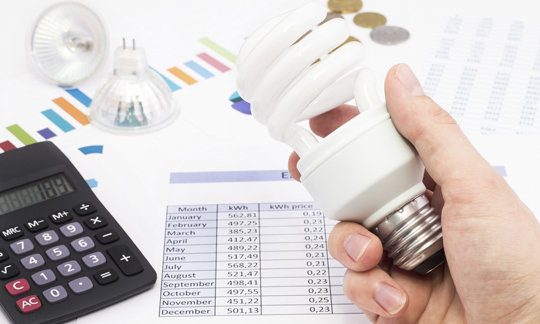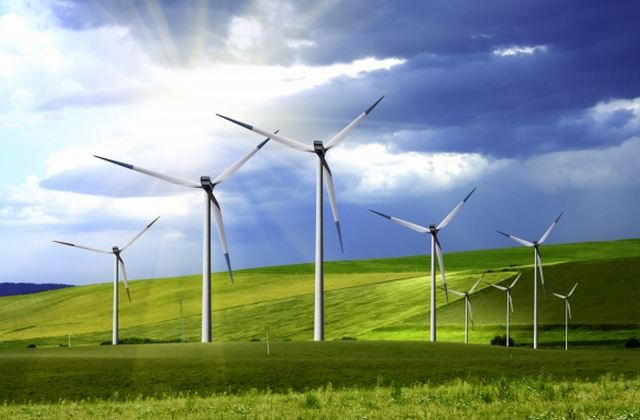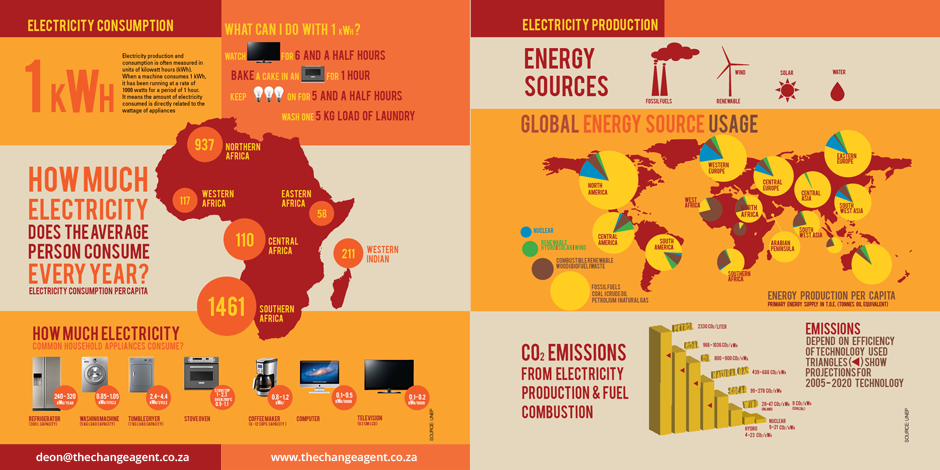National energy month 2015
March is Energy Month in South Africa. Over this period, government organisations will partner with businesses, organisations and concerned citizens to promote energy saving and spread awareness of South Africa's, and specifically the Western Cape’s, energy needs.
A big part of these awareness campaigns is to draw more attention to the many renewable energy options available to our citizens.
Renewable energy is generally defined as energy that comes from resources which are naturally replaced, such as sunlight, wind, rain, and waves. Renewable energy has the potential to be used to replace conventional fuels by using the sun, wind, ocean, and biofuels.
Understanding how electricity is produced and used is the first step in reducing your electricity use.
Here are some tips on how you can help reduce energy use in your everyday life:
Hot water geyser
- A solar water geyser will save you money and Eskom will also give you a rebate once you have installed one.
- Insulating the geyser by wrapping it in a geyser blanket can save a substantial amount of money every month.
- Switch your geyser off for at least two hours a day, anytime between 06:30 and 21:00, or install a timer on the geyser to avoid heating up water when you don't need it. This can save up to 20% on your electricity bill.
- Install a solar water heater.
- Shower instead of bathing and fit a low-flow shower head.
Lighting
- Use CFL or LED lightbulbs, which are more energy-efficient than incandescent lights. This is especially good for outside fittings, which stay on all night.

- Switch lights off when you leave the room.
Heating your home
- By insulating your ceiling, you can save half of your electricity used for heating.
- Keep windows closed when your heater is on. If possible, use an oil or gas heater.
- Include passive solar features if you are designing a new house:
- Have enough north-facing window areas.
- Ensure that your roof overhangs at the correct length to keep the summer sun out but let winter sun in.
- Install ceilings. It is difficult to warm up a double volume house.
- Insulate your walls and floors well, or use thermally efficient building materials.
General
- Switched-off cellphone chargers still draw power if they are plugged in.
- Switch off one piece of electrical equipment before switching to another.
- Switch off all appliances at the wall when not in use, especially during peak hours.
- Use your pool pump for two hours less every day and cover your pool in winter, this keeps your pool cleaner, putting less strain on the pump. If you service the pump and clean the filter regularly, you can save up to R420 per year.
- Avoid leaving your fridge door open. Wait for hot food to cool down before putting into the fridge and replace worn seals on the door. If you are going on holiday, switch your fridge off, or pop onto "vacation" mode.
- Use your kettle to boil water, rather than the stove. Never fill the kettle if you are only going to make one cup of tea. When you do put water in the kettle only use cold water, as each time you use the hot tap, energy is used.
 For more information please refer to the following:
For more information please refer to the following: - Sustainable Energy Strategy for the Western Cape
- Western Cape Green Economy Strategy Framework
- Western Cape Renewable Energy Independent Power Producer Programme (REIPPP)
- GreenCape Market Intelligence Report: Renewable Energy
- Western Cape Wind Farms
- How to become an Independent Power Producer (IPP)
- Renewable Energy Corporation
- Wind and Renewable Energy Associations
- Electricity from Renewable Resources in the Western Cape
The content on this page was last updated on 22 January 2016



